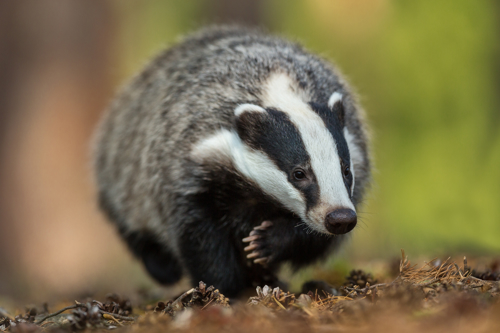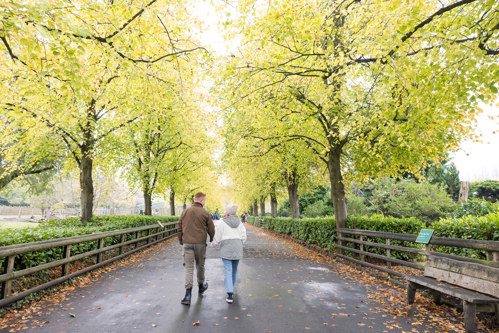
Our top 10 tips to enjoy autumn and support UK wildlife around Halloween and Bonfire night
Halloween and Bonfire Night coincide with migrations, hibernations and food harvesting
Autumn is a key time of year for many UK species, and there are easy things you can do (and some you can avoid) to help nature thrive right now!
“There is a lot you can do – and a lot you can avoid doing – to help nature thrive at this time of year,” said Sally Hall, our Ecology & Habitats Advisor for the Networks for Nature project, a major biodiversity project we are leading in Cheshire.
“And we encourage people to get out there and enjoy the changing seasons. It’s a great chance to connect with nature, which is good for human wellbeing, too.”
We have put together a top 10 things to do in autumn:
- Pop pumpkins up somewhere high and clear them away once Halloween is over
- Check for hibernating hedgehogs before setting a bonfire alight
- Before cutting, check hedgerows for late-nesting birds and long grass for small animals
- Be messy! Leave seed heads, dead leaves and brush in place
- You can also leave deadwood or log piles until next year
- Watch the skies and listen for migrating birds
- Take an early evening bat walk
- Go rummaging for fungi (but be careful)
- Enjoy the colours of the changing season
- Volunteer! It’s the season for biodiversity work
Sally said: “Autumn is an important time of year for garden and estate work, but don’t rush to tidy things up too much. Sometimes it’s more about what you don’t do. Leaving seedheads helps plants spread and provides animals with food as the weather gets colder. Invertebrates, amphibians and small mammals can hide in logs and dead wood.
“One thing that is important to clean up is Halloween pumpkins. If you have put any out on display, remember they can make hedgehogs and other small mammals sick, so put them somewhere out of reach and take them down straight after Halloween.
We strongly recommend checking bonfires for hedgehogs and other small animals before you light any fires!
Sally Hall, Ecology & Habitats Advisor for the Networks for Nature
Christopher Ablett, Community Volunteering Assistant Manager for our education team, said that autumn and early winter are a brilliant time to get exploring.
He said: “This is the season of change. At this time of year, some migratory birds have already settled in to overwinter here, while others are on the move. Look out for pink-footed geese – if you hear honking as a V formation flies overhead, that’s probably them, as the Wirral is a stronghold for the species.”
Sally added that the shorter days make it more important to get outside when you can, but they also offer new opportunities; there are still ripe blackberries in some areas, ready for picking, and there is plenty to see.
She said: “My favourite thing is an early bat walk. It’s darker, now, so you can find them pretty much straight after work.
“Also, go to the woods and find mushrooms, as it is peak season for mushrooms and toadstools to ‘flower’. They are growing on standing deadwood, on the ground and under leaf litter, so have a rummage!
“Be gentle if you touch them; most of the organism is underground, but I would leave the caps alone as best as you can, as they are food for lots of wild mammals. You can sometimes see scrapes where rabbits have had a nibble. Have a look at the gills underneath or just take a photo of them if you want to identify them. Make sure you wash your hands if you touch them!”
Christopher added that nature has its own answer to firework displays as trees, shrubs and climbing plants transform into different colours.
He said: “It’s the perfect time of year to notice little details, how the leaves change, how the light changes, how some animals disappear into hibernation and others arrive. It’s a good time to stop and look for beauty.
If you’d like to be a bit more active, autumn is the key time to sow wildflowers, get involved in hedge laying and carry out other biodiversity work. There are a lot of volunteer opportunities out there.
Christopher Ablett, Community Volunteer Assistant Manager
It benefits from funding from the National Lottery Heritage Fund, Westminster Foundation, Lord Leverhulme's Charitable Trust, Marjory Boddy Charitable Trust and Sykes Cottages.
